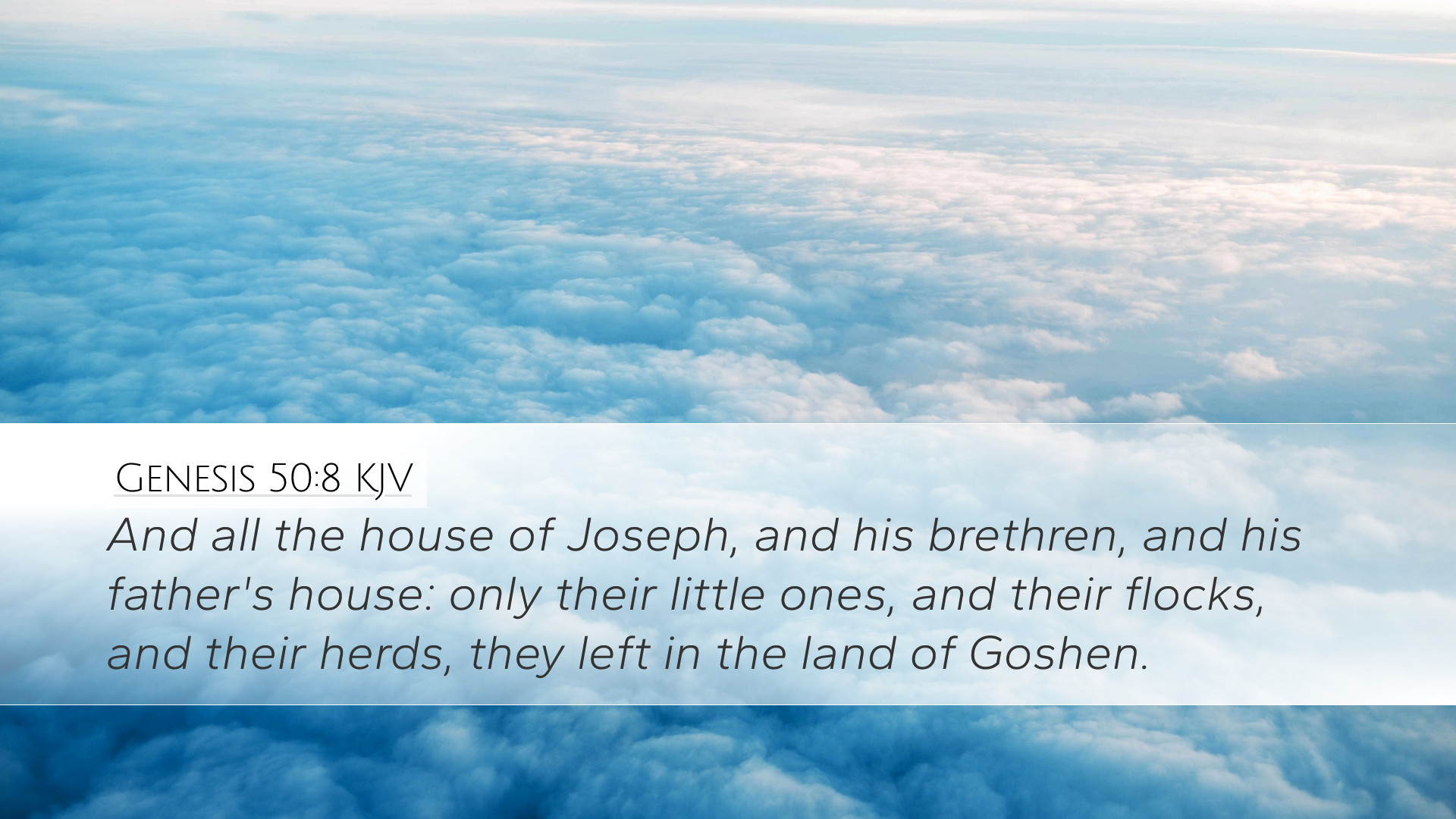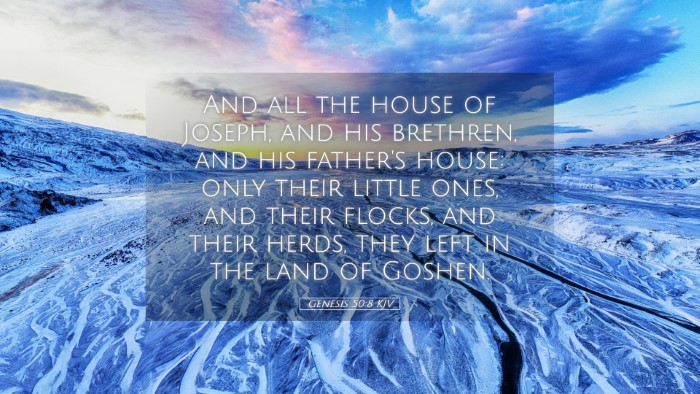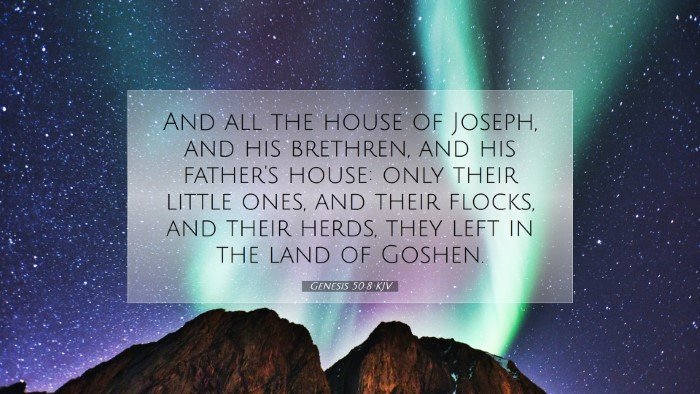Commentary on Genesis 50:8
Genesis 50:8 states: "And all the house of Joseph, and his brethren, and the house of his father, came down to bury him." This verse summarizes a moment of profound significance, where familial bonds, mourning, and respect converge around the death of Jacob.
Contextual Analysis
Prior to this moment, Jacob (Israel) had lived a long life, filled with both trials and divine encounters. His passing marks the conclusion of the patriarchal narratives and sets the stage for the future Israel’s sojourn in Egypt. The verse serves as a fitting conclusion, wrapping up the family dynamics that have persevered through various hardships.
Matthew Henry's Insights
Matthew Henry emphasizes the importance of family unity in times of mourning. He notes that the involvement of Joseph, his brothers, and the household of Jacob in the burial serves to highlight the respect bestowed upon their father with a collective act of love. This underscores the biblical principle that recognizes the significance of honoring parents, as reiterated in the commandments.
- Unity in Grief: Henry points out that the family’s coming together amidst grief reflects a shared responsibility; they collectively honor Jacob. This unity is vital in reflecting God’s design for kinship, where family members support one another during grief.
Albert Barnes' Commentary
Albert Barnes illustrates the practical aspects of this burial. He notes that such an event was not just a personal affair but one laden with social and cultural implications. The funeral procession indicated the high esteem in which Jacob was held.
- Cultural Significance: Barnes explains that the act of burial was critical in ancient Near Eastern culture, often accompanied by beautiful rituals and expressions of grief. Jacob’s burial reflects the customs of that time, showcasing the profound respect afforded to the dead.
- Role of Joseph: Barnes highlights Joseph’s prominent role in the story, underscoring his leadership and integrity. His status as a ruler of Egypt juxtaposes the familial ties with the Egyptian context, providing insight into how God's providence works through personal experience to fulfill divine purposes.
Adam Clarke's Observations
Adam Clarke provides a spiritual interpretation, suggesting that this moment of burial is emblematic of the transient nature of earthly life. Clarke interprets the gathering of Jacob's family for burial as a reminder of mortality and the importance of consciously preparing for eternal life.
- Spiritual Reflection: Clarke posits that this moment encourages one to ponder on the legacy one leaves behind. The reverence shown at Jacob's burial encourages believers to consider the impact of their lives and the importance of maintaining a God-oriented burial, aiming to honor the deceased while also reflecting on divine eternity.
- Life Lessons: Clarke emphasizes that the narrative sends a lesson to modern believers about the importance of familial duties and the shared grief that fosters unity and strengthens community bonds in the face of loss.
Theological Implications
The collective action of Jacob's family in his burial presents multiple theological implications that resonate with contemporary faith communities. It emphasizes the significance of familial solidarity and respect for the deceased within a Christian context, encouraging believers to reflect on their relationships and responsibilities toward their family members.
Application to Modern Ministry
For pastors and theologians, Genesis 50:8 encourages the practice of creating a supportive environment within church communities that mirrors the collective mourning seen in Jacob's family. It redirects focus toward the act of honoring family roles in ministry contexts, reinforcing the idea that churches should be places where grief is shared and handled collectively.
Conclusion
In closing, Genesis 50:8 serves as a poignant reminder of the enduring values of familial bonds, respect, and collective grieving acceptable in the sight of God. The insights of Matthew Henry, Albert Barnes, and Adam Clarke help solidify the verse's meaning, offering rich cross-generational wisdom for pastors, students, and theologians alike. Biblical narratives not only reflect on past events but continue to shape how believers engage with life’s deepest experiences—life, death, and the powerful bonds of family.


